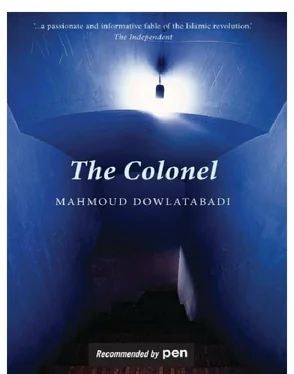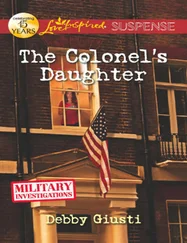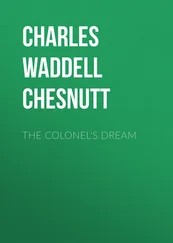It was a pimp of a lie! I tucked the folder with the order in it under my arm, about-turned, marched out of headquarters and told my driver to get out of town and take me straight home. Maybe I’d lost my senses, or was it that I’d finally come to them at last? What are one’s senses, anyway?”
“This way, colonel.”
“Yes, yes, of course…”
He knew everything was ready. He had hung about too long and it was time to go. He had to go the length of the snooker hall to the door, through the door and down the steps that he had come in by. Outside, waiting in the rain beside the ambulance, he could just make out the two young men who had come to his house. The barrels of their machine guns were shining in the light from the martyrs’ shrines as they pulled the hoods of their parkas over their heads. Their trouser bottoms and boots were soaked and spattered with mud. He remembered that the younger one had rubbed at the sparse hair on his face, while the cheeks of the more grown-up one were already endowed with a decent black beard. And now the colonel was watching the ambulance, as it was being washed by the rain, to see how the next stage of the proceedings would begin.
“You sit in the back, colonel.”
The driver, whom the colonel had not noticed — though this was nothing to do with his short-sightedness — was raring to go. Young drivers these days generally drove fast and nipped through the traffic, not at all like the old lorry drivers after the war, who made a point of driving in a very dignified and ostentatiously sedate manner. For instance, whenever they stopped off at a roadside teahouse, they seemed to shed a huge load of responsibility from their shoulders as they got down from their cabs. They always wore a silk neckerchief and, as they got down, they always had one hand hooked onto it as, with great dignity, they took a leisurely turn round the lorry and, after giving orders to their driver’s mate, lumbered off to the little stream beside the teahouse, where they squatted down to wash their oily hands and faces, never taking their eyes off the lad who was seeing to the lorry.
But today’s young drivers had different ideas about life. Most of them seemed to be rude and flippant, even those who drove ambulances. They were as arrogant as cats that had been told their shit had some use. They didn’t give a damn about their passengers and just kept their foot on the floor. It didn’t matter if it had been raining and the potholes were full of water; they couldn’t be bothered to avoid the bumps or think about an old man perched on the narrow bench in the back, clinging on to his daughter’s coffin. the colonel was aware that, by giving his daughter a coffin and an ambulance, they had shown him some respect, but he also noticed that the driver could not care less, and was driving as if he was delivering meat to the butcher’s. No question about it — quite unwittingly on his part, he had got this chap out of bed, even though he was supposed to be on nightshift, and now he would be cursing the colonel under his breath all the way to the cemetery.
And again he fell to thinking that, if he had not killed his wife, his daughter would not be lying there in her coffin now. But he knew perfectly well that persisting in this line would get him nowhere and that nothing was going to change. The truth that was now staring him in the face was that Parvaneh was lying in a coffin that smelt of blood and guts and, with every bump in the road, her skinny little body was flapping around in it like a half-dead fish. Parvaneh had been young and the colonel could not imagine her without her grey school smock. He could even picture the outline of her bony shoulders through it. So much about Parvaneh reminded the colonel of the little canary which, from the first day, he had named after her. Perhaps he had become so attached to his motherless daughter through having had to bring her up on his own, loving her both as father and as a mother. He saw her as a fledgling that he was teaching how to fly. He had once heard that young birds lose their way in storms, especially at dusk, and get blown off course into unfamiliar country. He saw all her comings and goings in this light and, when she disappeared, he imagined that the wind had carried her off and lost her.
The wind confuses them, makes them giddy. I am no professional pigeon fancier, but I know this much, that young birds get lost in the wind, particularly in a west wind. 10It confuses them and makes them giddy, it ties them up in knots and they lose their sense of direction and, in their struggle to find their way, they break their wings. And in a storm there is no shortage of hawks and vultures looking for prey.
The night that Parvaneh failed to come home, the colonel had a premonition that the wind had taken her, and he could not help thinking how many pigeons with bloodied wings he had seen over the years. So he waited, which was all he could do. Which in fact was not doing anything, but just a state of mind. A state of mind that our fathers and forefathers have passed down to us like some painful legacy. Waiting, endlessly waiting… And now he was waiting to get to the graveyard, in the hope that, as she was being consigned to the earth, he could pull aside Parvaneh’s blood-stained shroud and see her face one last time. 11Of course, he could uncover her right here in the ambulance, but he was worried that this breach of the rules might have unpleasant consequences, both for him and for the others. He could imagine her face and he could even feel how she had become almost weightless in her innocence, more so than she had ever been in her life. This feeling only served to heighten the pain, making it so acute as to almost tip the old man over into madness. But because he knew he had to remain calm and composed, he forced himself to suppress all thoughts — impossible thoughts — that his daughter was alive, as it was obviously out of the question. Experience had taught him that outpourings of grief at the death of a loved one come from remembering moments in their life. So, the only way for him to hold back his grief would be to resist thinking of her as alive. This was anything but easy, and required complete control over his nerves and over his mind. He was determined to shut out any thoughts of his daughter when she was alive until after the funeral, when everyone had gone away. And so he tried to imagine Parvaneh as a dead fish on a river bank, wrapped in a dirty cloth, which flapped this way and that every time the ambulance hit a bump in the road.
But… was it really because I disobeyed orders, was arrested and went to prison, that I could not do my duty by Parvaneh, my youngest child? After all, Farzaneh, her elder sister, was busy looking after her husband, and my boys had all gone their own ways. Amir was in prison, Mohammad-Taqi was trying to get into university and Masoud was a complete loner. Oh my poor children… at least one of you might have taken better care of yourselves. It’s not as if you had to bear the whole weight of the world on your shoulders! I am not as strong as you may think I am. Do you want to take on the whole world? Life is not about winning, you know… But whenever I tackled them about this, they always had an answer up their sleeves.
“But we get it all from you, papa, you are one of the few officers of the Shah who refused to go to Dhofar. You were the only person who told us all about Mossadeq and how he nationalised the oil industry.” 12
I walked a very straight line, my dear children. But none of you cared about the others and you all went charging off in different directions. What’s the matter with you all? You’re all one family, but you bark up different trees! What is it that you are all after, that keeps you so much at each other’s throats? Are you all living on different planets?
Читать дальше












